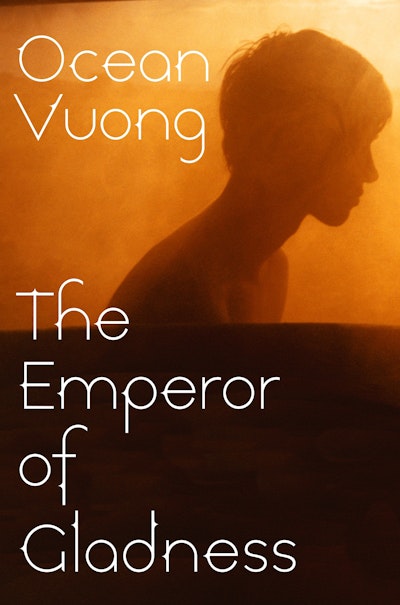06/AUG/25
READ: (Book) The Emperor of Gladness (2025) - Ocean Vuong
 This is Vuong's second novel, and I read the first too. It was really good! Which I hoped for since his first book was so wonderful. His background in poetry is a lot less noticeable in this book compared to the first. I loved how descriptive his first book was, but I think this one, being less so, is more grounded. It reflects the thoughts of the 20yr old main character a lot more with less flowery language and little more angst. I really liked how the book did become a bit more surreal towards the end. The cast of characters were really fun. Although I do think they were exaggerations in some way, they were all very plausible and very “real” people. The ageing woman that swigs whiskey at work and goes in the freezer room for bags. The manager who dreams of being a pro wrestler. The customer Hai ends up sleeping with, the denial yet friendliness oozing from him. It was almost comedic.
This is Vuong's second novel, and I read the first too. It was really good! Which I hoped for since his first book was so wonderful. His background in poetry is a lot less noticeable in this book compared to the first. I loved how descriptive his first book was, but I think this one, being less so, is more grounded. It reflects the thoughts of the 20yr old main character a lot more with less flowery language and little more angst. I really liked how the book did become a bit more surreal towards the end. The cast of characters were really fun. Although I do think they were exaggerations in some way, they were all very plausible and very “real” people. The ageing woman that swigs whiskey at work and goes in the freezer room for bags. The manager who dreams of being a pro wrestler. The customer Hai ends up sleeping with, the denial yet friendliness oozing from him. It was almost comedic.
Hai, our main character, was so interesting to watch. I like how slowly parts him unfold. The drug usage and it's cause only being supplied in such a way that you almost forget it's part of him, like his race and queerness. They are integral undercurrents to who he is, yet in daily interactions it's not wholly clear how they affect him. Mental health is so central to the book. It's where the story starts with Hai trying to throw himself off a bridge, before an old woman calls to him from her house on the riverside. Grazina's mental health, and it's continual decline, creates a countdown on the life Hai is living — in her house as her carer and friend. Later in the book, in relation to Grazina's impending need for more care, Hai/Vuong comments on the reality of aging in America. The quote on p310 really stuck with me:
 "...varied stations of life now equalized in the only true egalitarian wing of the American dream: the nursing home, where the past is nothing but what it's done to you. Where "a home", like this one, is often a place to hide the aging body... How is it that we have become so certain that the sight of years, the summation of decades, should inflict such violence on the viewer—including family—that we have build entire fortresses to keep such bodies out of sight?"
"...varied stations of life now equalized in the only true egalitarian wing of the American dream: the nursing home, where the past is nothing but what it's done to you. Where "a home", like this one, is often a place to hide the aging body... How is it that we have become so certain that the sight of years, the summation of decades, should inflict such violence on the viewer—including family—that we have build entire fortresses to keep such bodies out of sight?"
